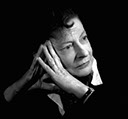
Obituary
"Phyllis Tate was a foremost member of that group of British composers whose success was partly built upon the new attitude towards women making a career in the writing of music that the talent, fortitude and persistence of Dame Ethel Smyth had engendered in the first quarter of the twentieth century.
She was born in Gerrards Cross in 1911, the daughter of an architect. Her earliest musical activities were connected with experiments on a ukelele and it is interesting to note that, subtle and delicate though her art essentially was, it never lost a sort of robustness. Indeed, some of the most telling events in her work arise from its rich mixtures of styles which gave it a uniquely personal quality, very much like the humour which permeated her conversation and made her such a delightful companion.
It could be said that the lasting quality in music comes from the cross-fertilisation of influences. Phyllis Tate had certainly a wide range of musical interests and quite late in life attended evening classes in African drumming. For someone whose first efforts were foxtrots in a Twenties style, who was a fluent arranger of light commercial music in the thirties, who had also produced the exquisite textures of the Nocturne and The Sonata For Clarinet and Cello, this was one more example of the exploratory field of the creative artist.
Phyllis Tate’s education was at the hands of Harry Farjeon at the Royal Academy of Music, an institution at which, alas, she never taught, though it did her the signal honour of mounting her opera The Lodger, in 1960. This highly effective piece is a rare example of a successful musical thriller which, like all good thrillers, was grounded upon psychological understanding and an authentic social atmosphere.
Though a devoted wife and mother (she only finished her String Quartet in the nick of time for her daughter’s birth in 1952) and, towards the end of her life, much afflicted by ill health, she produced a steady stream of impressive works, of which most people regard the Saxophone Concerto of 1944 as her first significant achievement. There followed a variety of pieces for a variety of vocal and instrumental combinations (she was never one for stereotyped media), including a setting of The Lady of Shalott for tenor, viola, percussion and two pianos (1956), Apparitions for tenor, harmonica, string quartet and piano (1968), the Sonatina Pastorale for harmonica and harpsichord (1974), as well as many considerable choral works, such as A Secular Requiem (1967), Serenade To Christmas (1972), St. Martha and the Dragon (1976), and All the World’s a Stage (1977).
Eschewing all doctrinaire precepts about how music should be composed, but possessing a truly professional technique allied to a very rare imaginative sensibility, Phyllis Tate will remain one of the outstanding British composers of her generation. Her music always sounded fresh and for that reason will never date."
Phyllis died in The Royal Free Hospital in 1987 after a decade of physical and mental health problems with recurrent bouts in hospital - not being able to compose any more undoubtedly exacerbated both her depression and physical state.
Written by John Gardner for The Independent, 3rd June 1987.
Copyright www.phyllis-tate.com - All rights are reserved. Admin email: admin@phyllis-tate.com